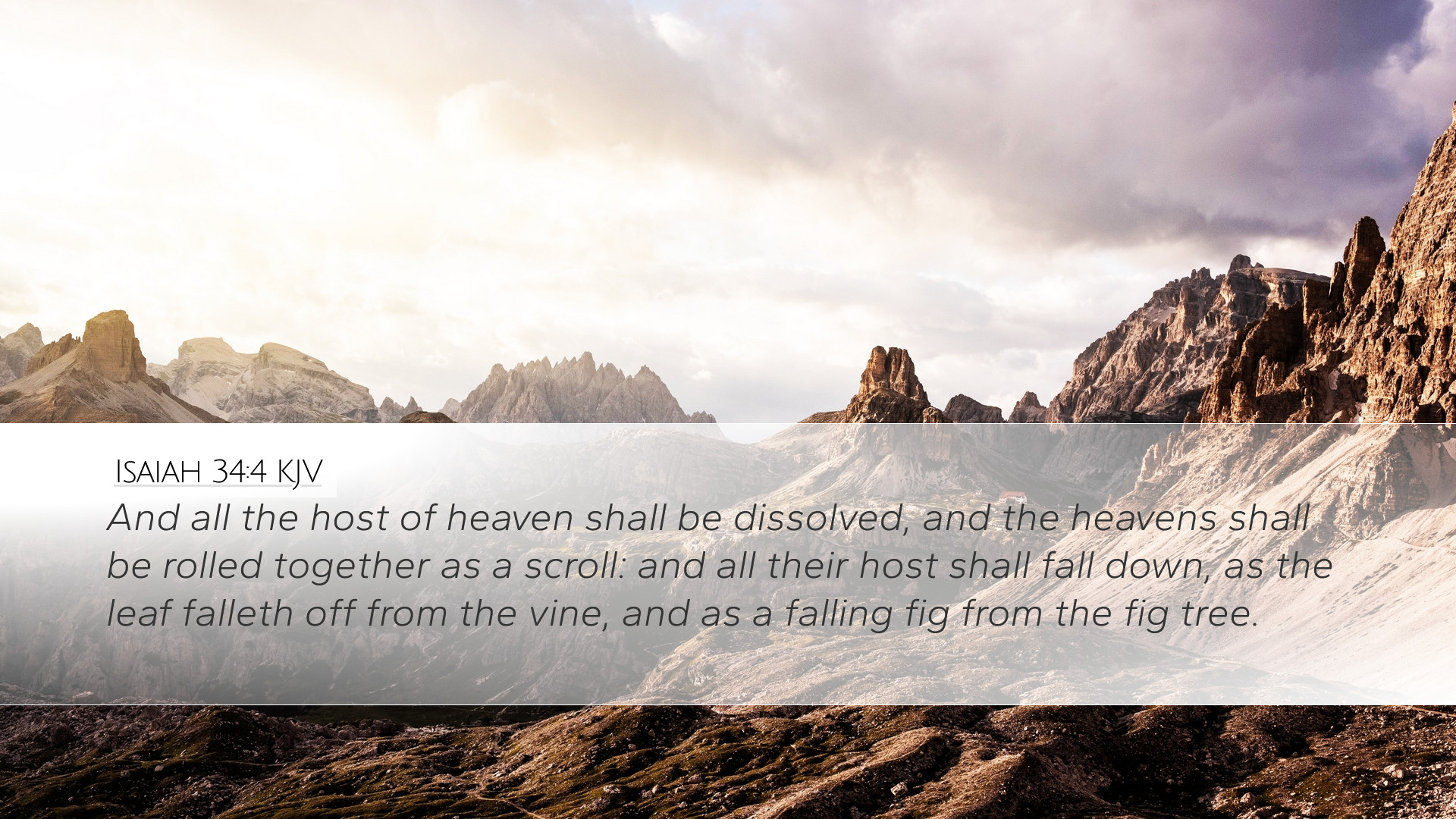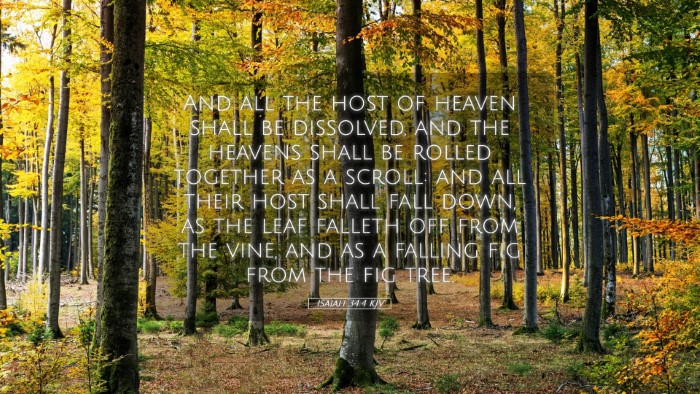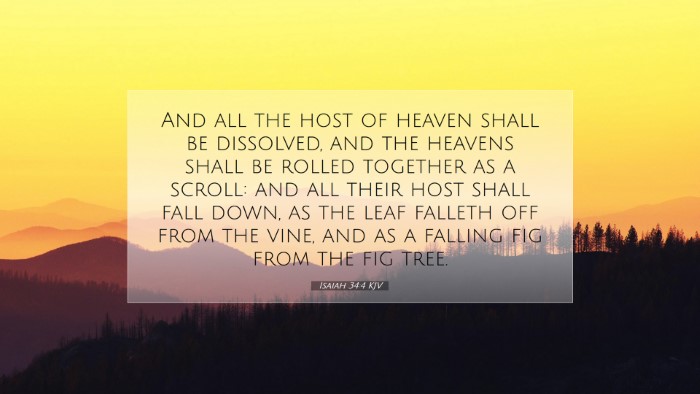Commentary on Isaiah 34:4
Verse: Isaiah 34:4 - "And all the host of heaven shall be dissolved, and the heavens shall be rolled together as a scroll: and all their host shall fall down, as the leaf falleth off from the vine, and as a falling fig from the fig tree." (KJV)
Introduction
The prophecy contained in Isaiah 34 serves as a powerful declaration of God's judgment, particularly against Edom, and by extension, the nations that oppose His will. This verse offers vivid imagery of cosmic upheaval that emphasizes the sovereignty of God and the inevitable downfall of those who stand against Him.
Commentary Insights
1. The Host of Heaven
Matthew Henry notes that the "host of heaven" refers to the celestial bodies—sun, moon, stars—symbolizing the divine order in creation. The prediction of their dissolution signifies not only the physical destruction of the heavens but also the end of any powers opposing God's reign.
2. The Imagery of a Scroll
Albert Barnes elaborates on the imagery of the heavens being "rolled together as a scroll." This metaphor conveys the idea of God's active participation in His creation's conclusion. Just as a scroll is rolled up to signify the end of its contents, so too will the heavens be enveloped in God's ultimate plan of judgment.
3. The Falling Hosts
Adam Clarke emphasizes the simile of the falling leaves as it pertains to the downfall of the heavenly host. This vivid example serves to illustrate that just as leaves fall in their season, so too will the forces of opposition to God face inevitable judgment. The imagery plays on the seasonal cycle, reminding us that all creation is under God's governance and timing.
Theological Implications
This verse has profound implications for understanding God's sovereignty over history. The dissolution of the heavens signifies not only judgment but also the establishment of God's justice and righteousness. The prophets often used cosmological language to convey spiritual truths, indicating that the temporal order has a direct correlation with divine reality.
- Divine Judgment: Just as God has rule over the universe, He holds authority to enact judgment upon it. The vivid portrayal of destruction serves to instill a sense of reverence and fear towards God's sovereign actions.
- Hope in Divine Justice: For the faithful, the impending judgment can lead to hope. While the wicked will fall, those who trust in the Lord will be saved—a recurring theme in Isaiah.
- Transience of Creation: This verse reminds believers of the ultimate transitory nature of earthly power. The structures and authorities that oppose God will not endure, as they are movable and accomplishable under His will.
Practical Applications
The implications of Isaiah 34:4 stretch beyond theological concepts and feed into practical areas for spiritual living:
- Encouragement in Trials: Believers facing opposition can take comfort knowing that the day of reckoning will come when justice prevails.
- Call to Righteousness: Followers of God are urged to live upright lives, reflecting God's expectations and embracing the hope of a new creation.
- Witness to the World: Understanding God's sovereignty should motivate believers to share the gospel. In light of looming judgment, the message of salvation becomes even more urgent.
Conclusion
Isaiah 34:4 serves as a stark reminder of God's ultimate authority over creation and His impending judgment upon all who defy Him. The apocalyptic tone of the passage, articulated through powerful imagery, does not merely concern the historical context of the ancient Near East but resonates in contemporary themes of justice, hope, and perseverance in faith. Each believer is invited to embrace the overwhelming sovereignty of God while living out the call to righteousness in the face of a transient world.


